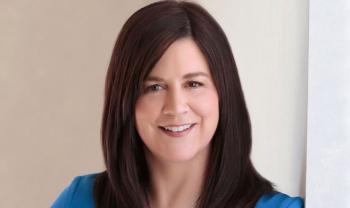Image Caption
Local Journalism Initiative Reporter
Windspeaker.com
In a casually delivered address peppered with ain'ts and humour, Michelle O’Bonsawin recalled an incident during her third year of law school.
She had been looking at a job board containing postings for law firms when one of the top students in her class told her she shouldn’t bother because she wouldn’t get a job.
“I remember telling my husband when I was named to the Supreme Court, ‘Geez, I wonder if (the classmate) saw the news,’” said O’Bonsawin, the newest justice and the first Indigenous person named to the top court of Canada.
O’Bonsawin kept the attention of the members of the Indigenous Law Students’ Association (ISLA) at the University of Alberta. She delivered her address in person on March 10, the final day of the ILSA Speaker Series.
March 10 marked the International Day of Women Judges, which O’Bonsawin said was important for recognizing the need to get more women on the bench.
Her journey to the Supreme Court was not typical, said O’Bonsawin, something she shares with many Indigenous people.
Growing up off-reserve in northern Ontario, O’Bonsawin described her family as having a “blue-collar background,” with her mother a teacher and her father a machinist. Because of the racist way her father had been treated, she said she didn’t connect as an Abenaki member of Odanak First Nation until she was about 10 years old.
She said she told her parents when she was nine that she wanted to be a lawyer.
“My dream job was to work in Aboriginal law,” she said. But she warned students to be open to change.
She didn’t get her dream job and began her law career with legal services at the Royal Canadian Mounted Police. She went on to be counsel with Canada Post, specializing in labour and employment law, human rights and privacy law.
In 2017, she was appointed to the Ontario Superior Court of Justice by then minister of Justice and attorney general Jody Wilson-Raybould, the first Indigenous person to hold that position.
“I’m a judge. I was really happy. It was quite amazing. It was a great journey to get there. But I have to say my first times on the court were intimidating because I had just turned 43 so I was the baby judge,” said O’Bonsawin.
It wasn’t an easy adjustment, she admitted, pointing out that the majority of the judges who headed the regions had “white hair and they were all men.”
O’Bonsawin recalled one incident that involved an older woman lawyer in the back of her Ottawa courtroom six months after she had been named judge. The woman was in conversation with a junior male counsel and referred to O’Bonsawin as the “Pocahontas of the north.” It was a variation of a derogatory reference made the previous day by former U.S. President Donald Trump about Democrat Senator Elizabeth Warren. Up until 2019, Warren had claimed Native American ancestry.
When O’Bonsawin asked the young man to confirm what was said, he said only that they had been talking about Trump’s comment. A week later, he asked to meet with O’Bonsawin and apologized for the incident.
A handwritten apology letter came from the woman, but O’Bonsawin would not accept it because she did not view it as an apology. O’Bonsawin phoned the woman’s law firm, told them that woman was now on her “list of conflict and she’s never going to appear in front of me again.”
“I want people to understand there are issues that happen and it doesn’t matter where you are in society, it continues to happen,” she said.
When Ketanji Brown Jackson was confirmed as the first Black woman to sit on the U.S. Supreme Court in 2022, O’Bonsawin said she was phoned by Cree Elder Kathy Lewis from Vancouver, a residential school survivor who works in the justice system. Lewis told O’Bonsawin that she foresaw the judge as the first Indigenous justice on the Supreme Court of Canada.
When an opening became available, O’Bonsawin called mentor Murray Sinclair, former senator and chair of the Truth and Reconciliation Commission on the legacy of Indian residential schools. Sinclair said it was time for Indigenous voices to be heard.
O’Bonsawin was appointed by Prime Minister Justin Trudeau in August 2022. Her first sitting as a judge on the Supreme Court was in Quebec on Sept. 1. She was officially welcomed by the Supreme Court on Nov. 28.
“I stood on the shoulders of giants and here I am,” said O’Bonsawin.
She admitted it remains an adjustment, going from being the single judge making the decision to now being one of nine judges making the decision. It involves patience, she said, and understanding that what she’s now part of is a “bigger machine.”
“I know that I’m under a microscope and a lot of people are looking at me. But I’m trying to remain who I am and have good ethics and write decisions that are going to, hopefully, be value-added for Canadians across the board. That’s my goal,” said O’Bonsawin.
This year's theme for the ISLA’s Speaker Series was “Having the Courage to Face the Storm.” The Speakers Series dates back over 20 years.
Never miss a Windspeaker article. Subscribe Today to our new Windspeaker Newsletter!
Local Journalism Initiative Reporters are supported by a financial contribution made by the Government of Canada.

